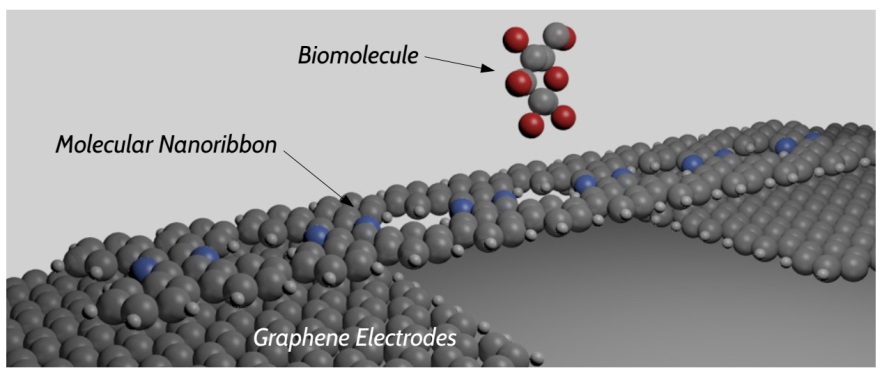Biosensing with molecular nanoribbons

Supervisors: Dr Sara Sangtarash, Dr Rebecca Notman
DNA sequencing (sensing the order of bases in a DNA strand) is an essential step toward personalized medicine for improving human health. Despite recent developments, conventional DNA sequencing methods are still expensive and time consuming. This project aims to exploit theoretically an alternative strategy for quantum sensing of biological species such as DNA using changes in the electrical properties of a membrane (e.g. molecular nanoribbons containing a pore) upon translocation of biospecies. It will also establish design principles to use molecular nanoribbons for a new generation of quantum devices for selective sensing of biospecies.
The ultimate goal of the research is to understand charge transport through molecular nanoribbons (an environmentally friendly, abundant and inexpensive element) and develop design strategies to harness their intriguing physical properties such as spin polarization and topological quantum states for a new generation of quantum devices and biosensing.
The candidate will receive a broad training on computational materials modelling, gain experience with cutting edge simulation methods, conduct a vibrant research with publication potential and would have an opportunity to conduct a collaborative project with internationally leading experimental groups in Europe and beyond.
For more information contact Dr. S Sangtarash (Sara.Sangtarash@warwick.ac.uk).
https://www.nanolab.uk/members/sara-sangtarash
Are you interesting in applying for this project? Head over to our Study with Us page for information on the application process, funding, and the HetSys training programme
At the University of Warwick, we strongly value equity, diversity and inclusion, and HetSys will provide a healthy working environment, dedicated to outstanding scientific guidance, mentorship and personal development.
HetSys is proud to be a part of the Physics Department which holds an Athena SWAN Silver award, a national initiative to promote gender equality for all staff and students. The Physics Department is also a Juno Champion, which is an award from the Institute of Physics to recognise our efforts to address the under-representation of women in university physics and to encourage better practice for both women and men.
